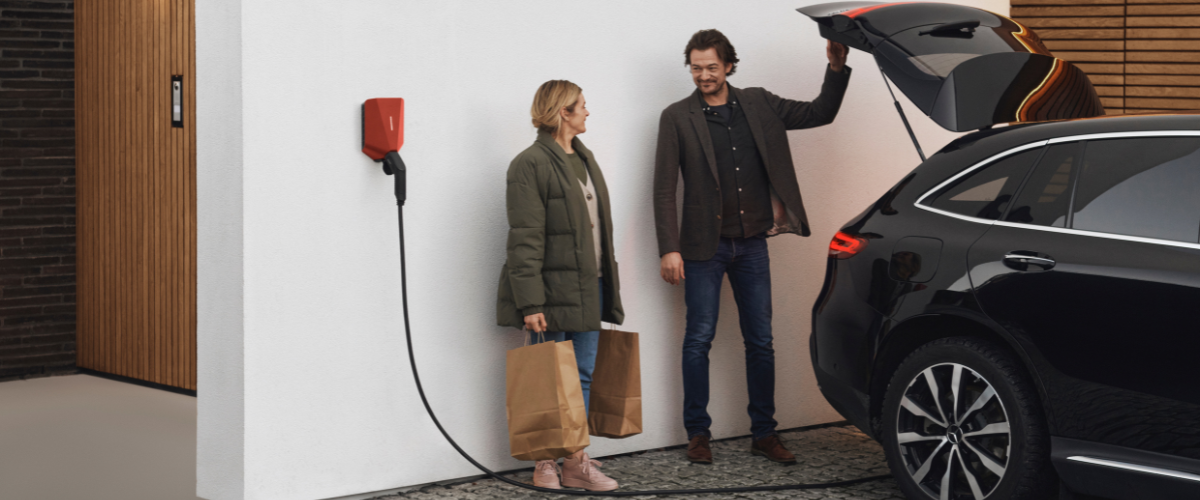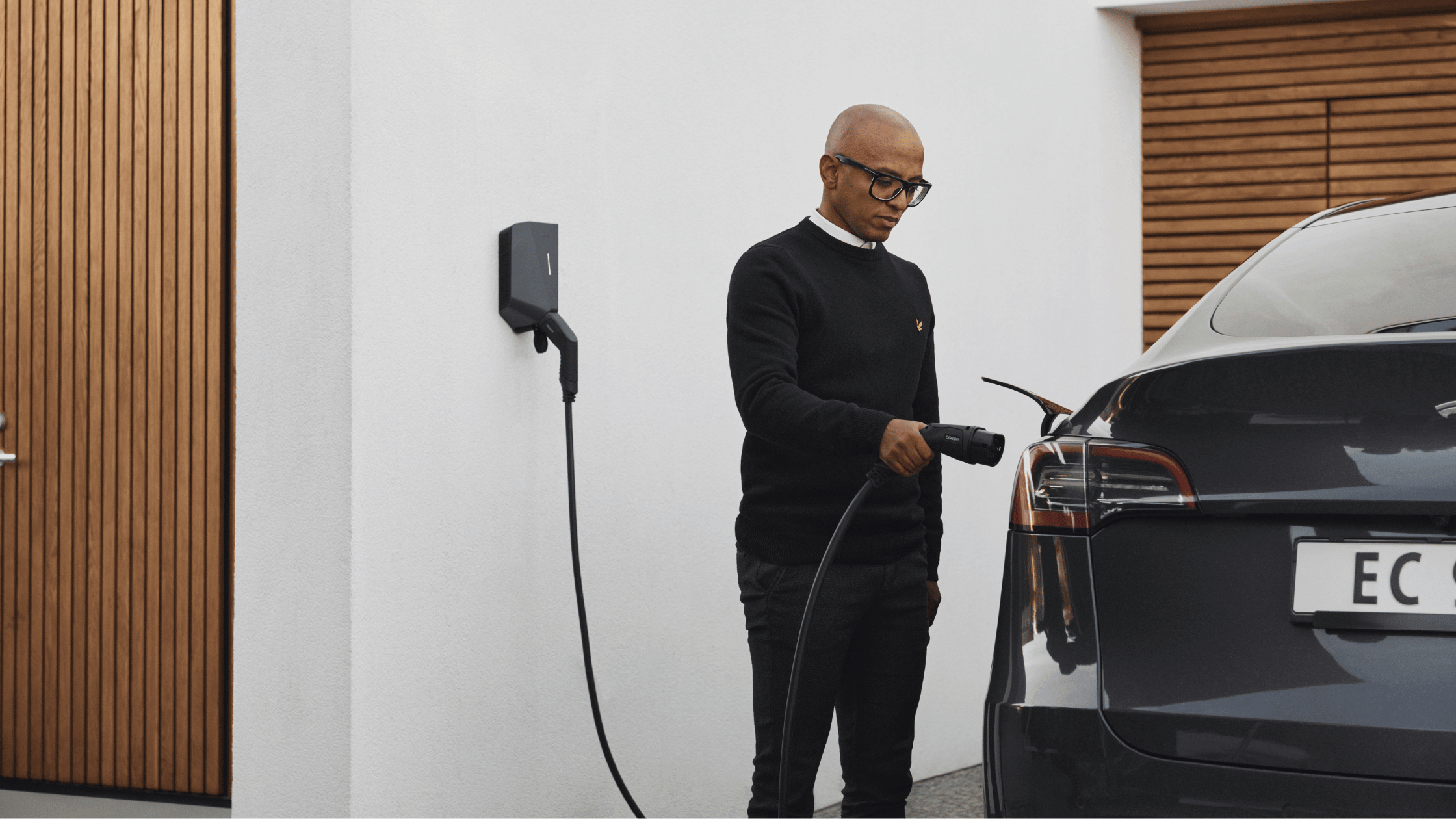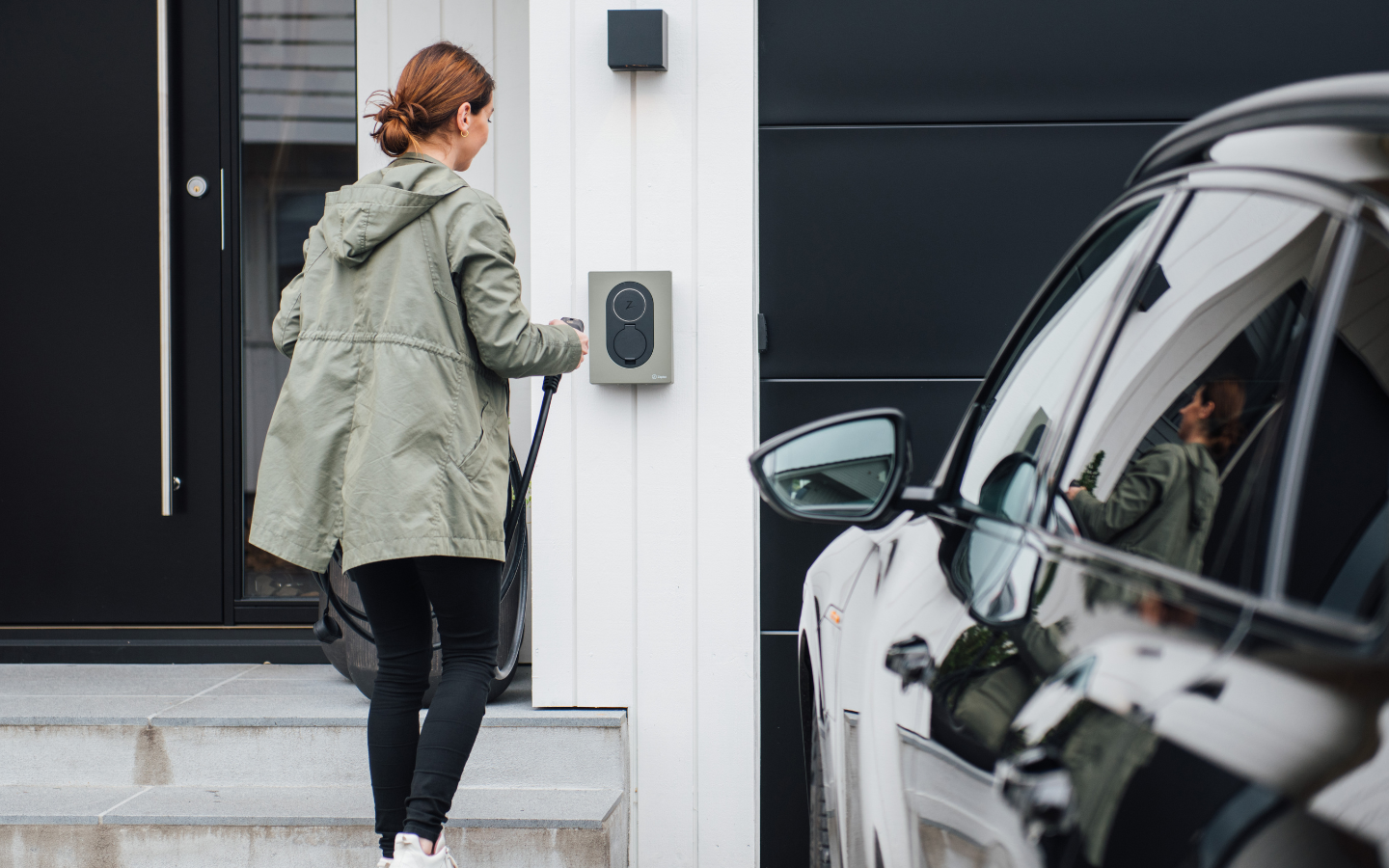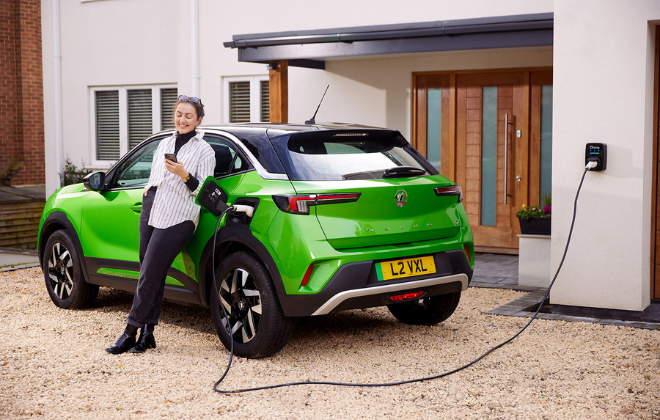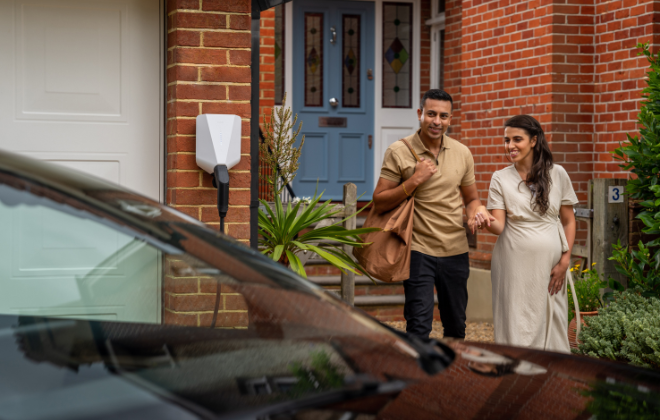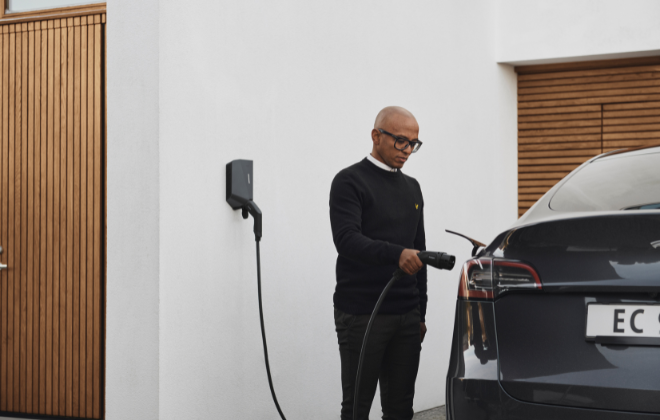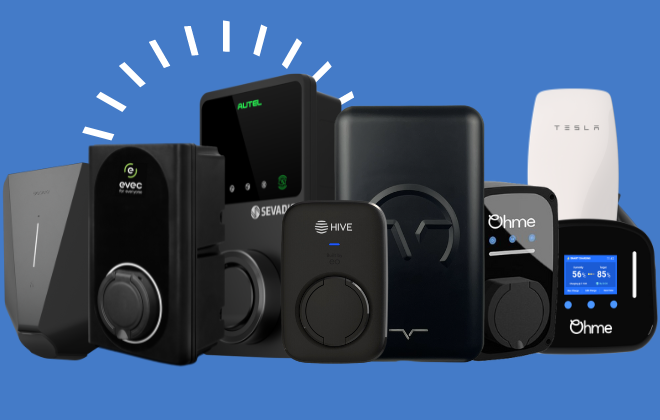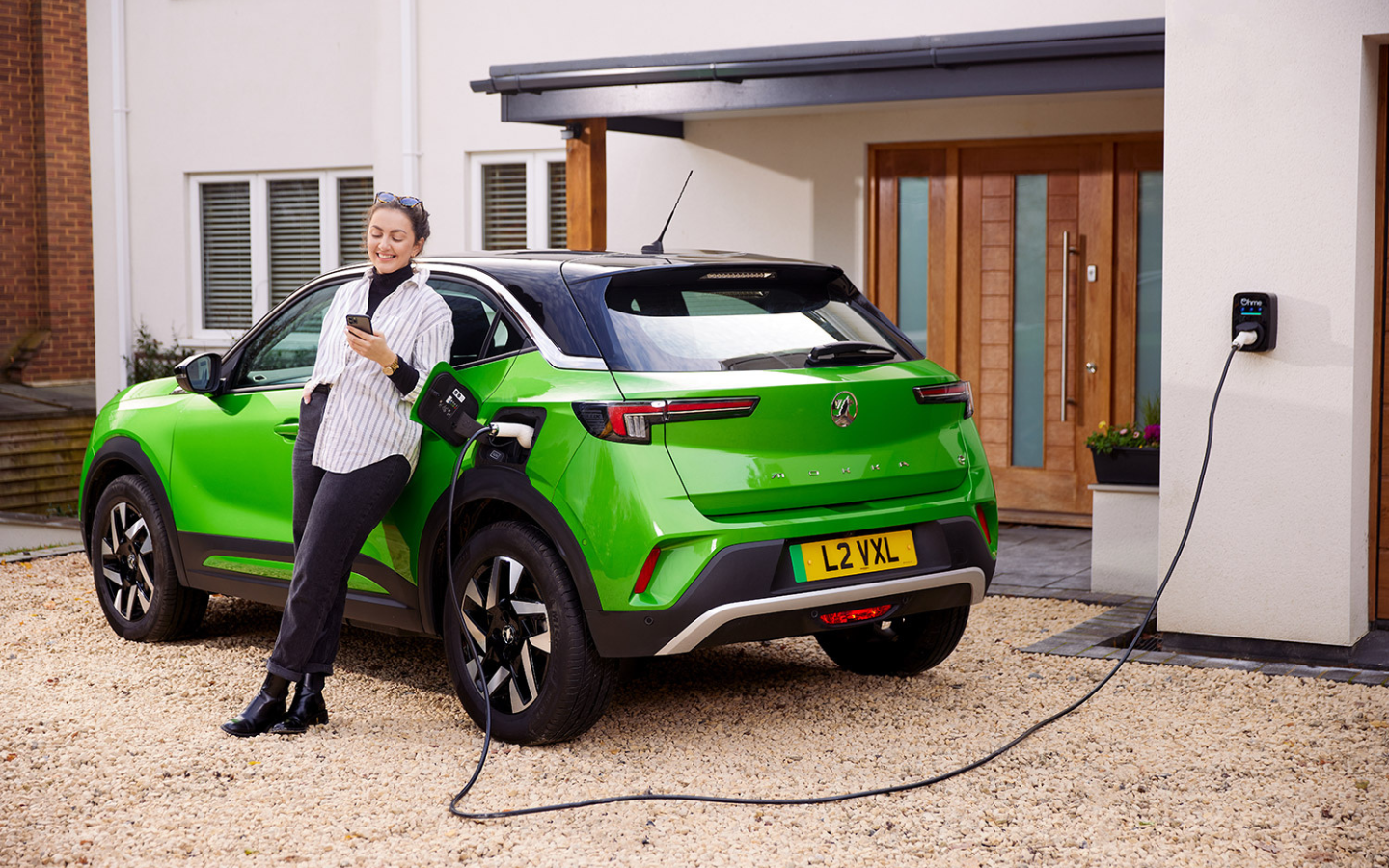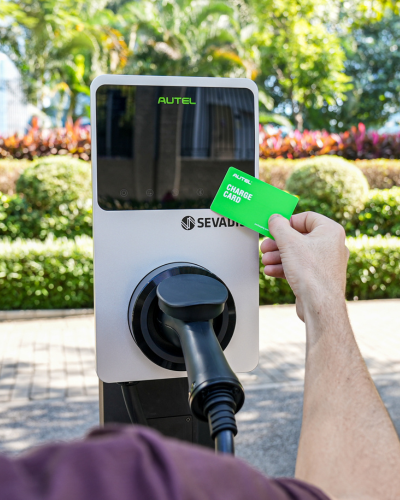
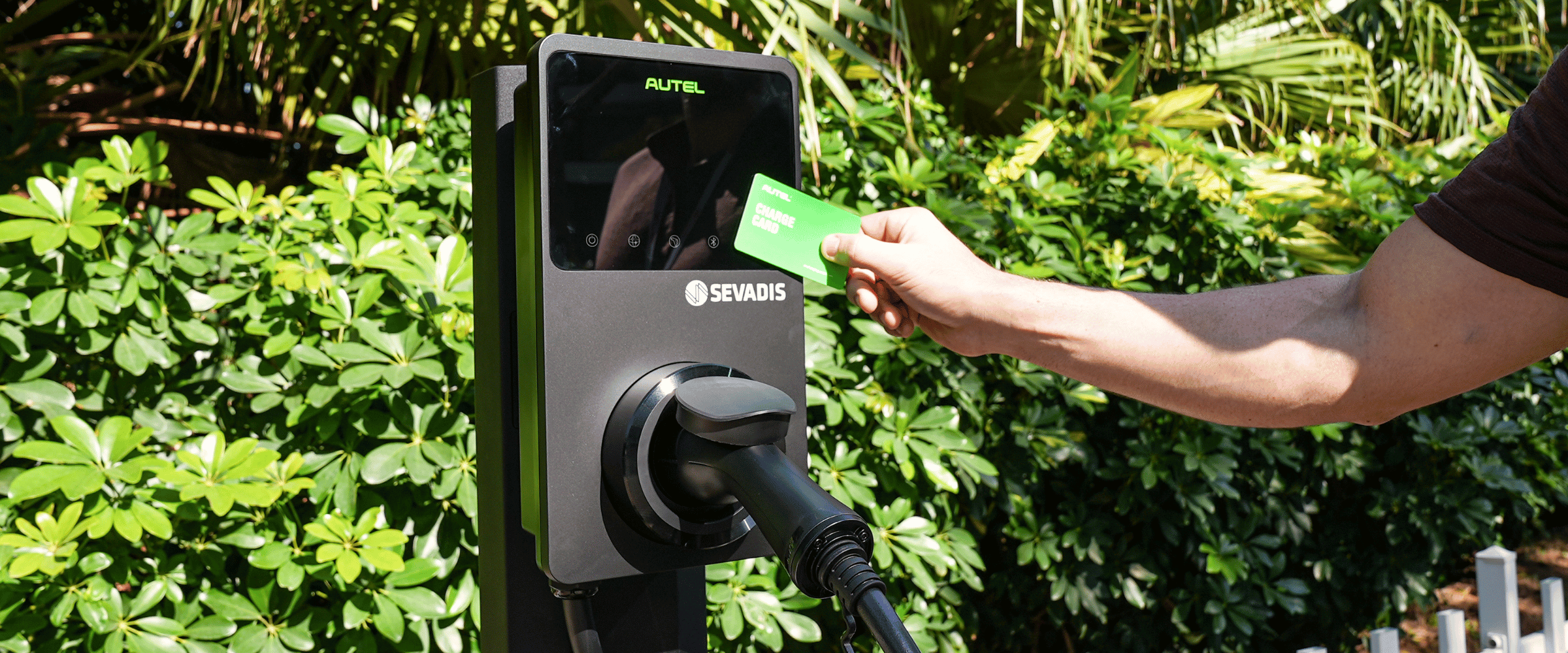
What is an RFID card for EV Charging?
What is an RFID card for EV charging?
Curious about how RFID cards fit in the world of electric vehicle charging? If you are here, it’s likely you are wondering – what is an RFID card for EV charging? Why do some EV chargers use RFID cards and others don’t? Do I need an RFID card to charge my EV? How do I get an RFID card for public EV charging points?
Don’t panic – you’re in the right place. In this guide, we will answer all the questions surrounding RFID cards and EV charging.
What is an RFID card for EV Charging?
An RFID card for EV charging uses Radio-Frequency IDentification technology to stop and start EV charging sessions. RFID cards are sometimes referred to as EV charging cards, tags, or keys, but all use Radio Frequency technology to contactlessly manage the electric car charger in use. RFID cards can come with home EV chargers as a smart feature but are more commonly used to manage charging at public charging points or workplace EV chargers.
To use, you simply scan your RFID card over the identification area on your chosen charger to start and then tap again to stop your charging session. Think of it like a key card that you use to gain entry at work or the gym.
RFID cards, despite their name, come in different shapes and sizes. Most resemble a contactless credit card, but others do opt for sleeker looks – like the Easee One key below.
Do I need an RFID card to charge my electric car?
Technically no, you don’t need an RFID card to charge your electric car – you can work any EV charger without one.
Of course, RFID cards do offer more convenience for EV charging as you can simply scan, charge and go, but there are alternative ways to charge your EV – whether dedicated home, public or workplace EV chargers. In fact, some EV chargers do not offer the ability to use an RFID card at all.
That being said, it depends on your personal circumstances as to whether you need an RFID card to charge your electric car. Some EV owners prefer RFID cards, while others prefer app management.
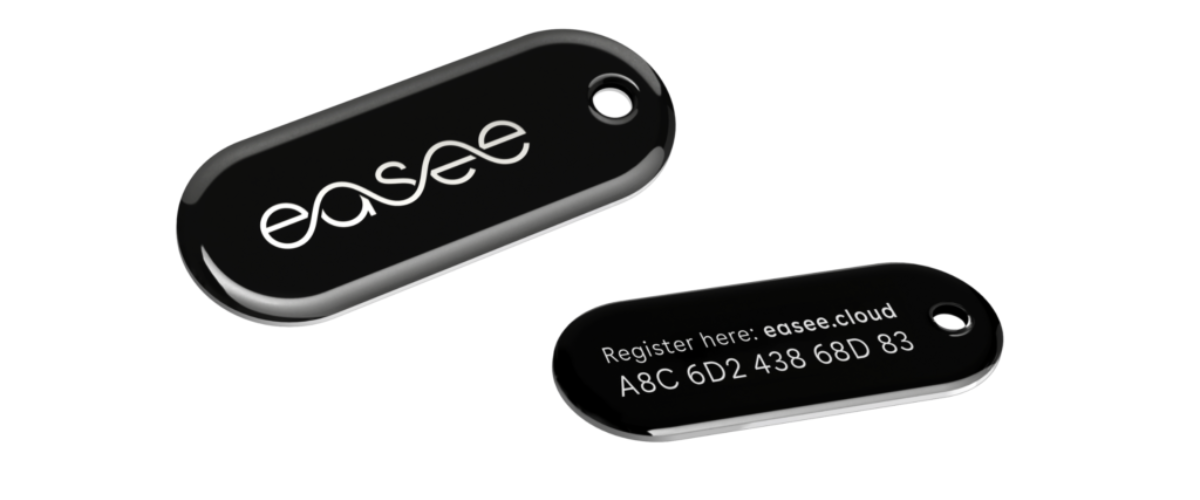
RFID cards and home EV chargers
Contrary to what one might think, it’s common for home electric vehicle chargers not to come with RFID cards. Most chargers rely on their advanced smart charging apps to stop/stop charging.
That being said, there are select chargers on the market that come with RFID functionality. The VCHRGD Seven, for example, comes with two RFID cards upon purchase. Other home chargers offer RFID keys at a small additional cost, such as the Easee One.
But why is RFID card charging not a standard EV charger feature?
Using an EV charger that has RFID card functionality built-in has its perks. Firstly, an additional layer of security is added to your unit. How? By setting up user-specific cards and only allowing those who own them to scan and charge, you are blocking unwanted users from plugging and charging.
There’s no need to stress about EV charger theft if your home charger doesn’t have the RFID card feature, though. There are other ways to protect your unit, such as taking advantage of a Cable Lock feature to lock the cable from unwanted use (if your home charger has this functionality). Moreover, RFID cards aid in ease of use. Due to the simple nature of the tap and charge, RFIDs are better for those who aren’t app-oriented – or technology savvy.
But while these cards come in handy due to the added convenience, with the introduction of the Smart Home Charger Regulations, you will have more opportunities to customise and manage your EV charging via a manufacturer app than via an RFID card, typically resulting in cheaper and sometimes greener charging. For example, the Ohme ePod, you can find out when the electricity in the grid is at its greenest and therefore charge your EV with more renewable energy.
That being said, if convenience and speed are what you are after, opting for an EV charger with an RFID function – such as the VCHRGD or Easee One – may be the best choice for you.
RFID cards and public EV chargers
Public EV chargers are typically located at motorway services, public car parks and supermarkets. These public charging points offer different charging speeds, catering to fast charging and rapid charging at rates of 7kW, 22kW and higher.
To pay for these public EV charging sessions, you will either need a smartphone app that matches the charging network – such as BP Pulse and Shell Recharge – an RFID card or a credit card. Not all public charging networks offer RFID cards, though. For example, Pod Point scrapped the use of RFID cards with their public network back in 2015. And unfortunately, no EV charging stations in the UK allow the use of cash as payment.
Of course, free charging stations can still be found across the UK. However, as the adoption of electric vehicles increases, public EV charging networks tend to charge for each session. That being said, if you use Zap-Map and filter the results, you’ll be notified of any free charging points near you.
In terms of benefits, RFID cards make life easier when public charging. With a simple tap, you can start, stop, and pay for the charging session instead of having to faff around with payment or apps – which is worse when on a tight schedule or if there’s a queue behind you.
For ultimate ease, some charging networks offer a single RFID card or app that can be used at multiple public EV chargers instead of needing different apps and cards for different networks, adding another layer of convenience. Not only that but by only having one RFID card, you won’t be over-stuffing your wallet.
How to get an RFID card for EV charging:
If your home EV charger has the RFID card function, your charger will either come with the cards as standard or it will require a small cost. Either way, when searching for a home EV charger, you can always ask the question if it’s a feature you’re interested in.
For a public EV charger, RFID cards can be free, but typically they come at a cost as well – typically around £10-£15. You can request a card via the network website or through their app. One important thing to note is that before you can use your card, you’ll have to pre-register your RFID card and manage your account online, which involves topping up your card with funds.
What is the best RFID card for EV charging?
As previously mentioned, there are RFID cards and apps that provide easy access and payment on a number of the UK’s public EV charging point networks, such as:
- Shell Recharge RFID card
- BP Fuel & Charge Card
- Zap-Pay by Zap Map
- Bonnet
- Geniepoint
- Chargemap Pass
But in our opinion – the best RFID card for EV charging is the Octopus Electrocard from Octopus Electric Universe.
The Octopus Electrocard gives you access to over 725,324 EV chargers, meaning you don’t have to worry about different apps and cards bulking up your wallet – you have one card to manage them all. Simply tap and charge. Anybody can sign up for an Octopus Electrocard or the Octopus Electric Universe through their app, although it does integrate with your home energy supply if you are an Octopus Energy customer.
On top of this, there are no subscriptions or transaction fees when charging. Exclusive discounts can be offered too, making it more convenient and cost-effective. It’s even better news if you’re already an Octopus customer – for Octopus Go customers, you receive 5% off across any public chargers that are part of the Electric Universe, and Intelligent Octopus customers receive 8% off. What’s more, you can register a free personalised RFID card when you sign up.
All in all, the Electrocard from Octopus Electric Universe is one RFID card you’ll want in your wallet.
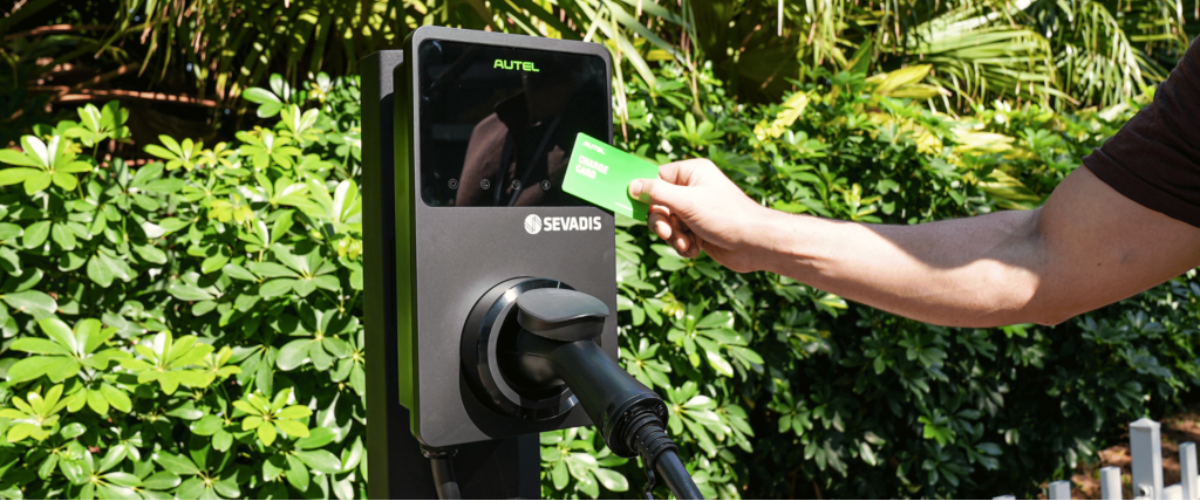
What are the best EV chargers with RFID card functionality?
The best EV chargers with RFID cards are the VCHRGD Seven and Easee One for home EV charging, both being compatible with all electric vehicles, including Teslas. In addition, the best RFID card for workplace and commercial jobs is the Sevadis MaxiCharger.
Interested in an electric car charger with RFID card functionality?
If you are looking to get an EV charger installed at your home, click below to get your free quote. Alternatively, contact us for more information or any queries you may have.
At We Power Your Car, we handle the entire electric car charger process on your behalf, including DNO applications and grant paperwork – all with first-class customer service. With engineers nationwide, we can install wherever you are.
For more information and our latest updates, follow us on Facebook, Instagram, Twitter, LinkedIn and YouTube.
Related articles_
Stay up to date on the latest from We Power Your Car_
I consent to receive newsletters from We Power Your Car. Please see our Privacy Policy
